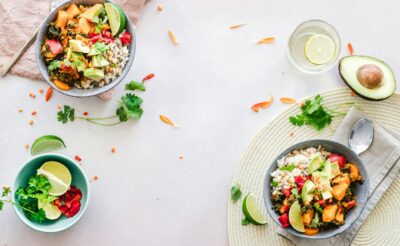Lauded for its weight-loss potential, the keto diet is the high fat, low carb food plan that has attracted A-list admirers such as Halle Berry, Kourtney Kardashian and Adriana Lima. But read the small print and you’ll find that this is strictly-no-pasta plan may be less effective than you first thought and could cause more harm than good in the long term. Here, clinical dietitian at Medcare, Dr. Nadine Aoun, weighs in with her expert opinion.

Photographed by Greg Adamski | For MOJEH 65
Words by Dr. Nadine Aoun
The keto diet is: High in fat. Unlike other low carb, high protein eating plans where fat supplies 90% of the daily calories, the keto diet is moderate in protein and very low in carbohydrates.
Which means avoiding nutrient rich foods that are high in carbohydrates, including: fruits (with the exception of berries), vegetables that grow below the ground, milk and yogurt, and whole grains.
What you can and cannot eat: In a keto diet, one needs to consume below 50 grams of carbohydrates per day. On a keto diet, carbohydrates from all sources are restricted. So they often consume no bread, cereals, rice or pasta, and even fruits and vegetables that contain too many carbohydrates.
In a keto diet one must have fat at each meal, some healthy unsaturated fats like nuts, seeds, avocado, olive oil, and some unhealthy saturated fats like coconut oil, butter, lard.
The history of the diet: The keto diet was originally used to help reduce the frequency of epileptic seizures in children. Nowadays people are following it to help them in reducing weight, even though we don’t have enough research and studies to see if it works long term, nor if it is safe.
How does it work: The keto diet relies on ketone bodies, a type of fuel that the liver produces from stored fat instead of relying on sugar (glucose) that comes from carbohydrates such as (grains, legumes, vegetables, and fruits).
But getting the liver to make ketone bodies is not easy, as you need to deprive yourself of carbohydrates to less than 20 to 50 gram per day. It also takes time to reach to ketosis state, and eating too many proteins can interfere with ketosis.
You should avoid if: This diet is not recommended to people with: pancreatic diseases, liver conditions, thyroid problems, gallbladder disease or people who have had their gallbladders removed.
Potential side effects include: Remember a keto diet is high in saturated fat which causes increase of the bad cholesterol which is the LDL cholesterol, which puts you at risk of heart disease.
The lack of eating fruits and vegetables puts you at risk of nutrient deficiency, as well as constipation as fruits and vegetables are high in fiber, So having a healthy, nutritious balanced diet is better for overall health, and moderation is the key.





